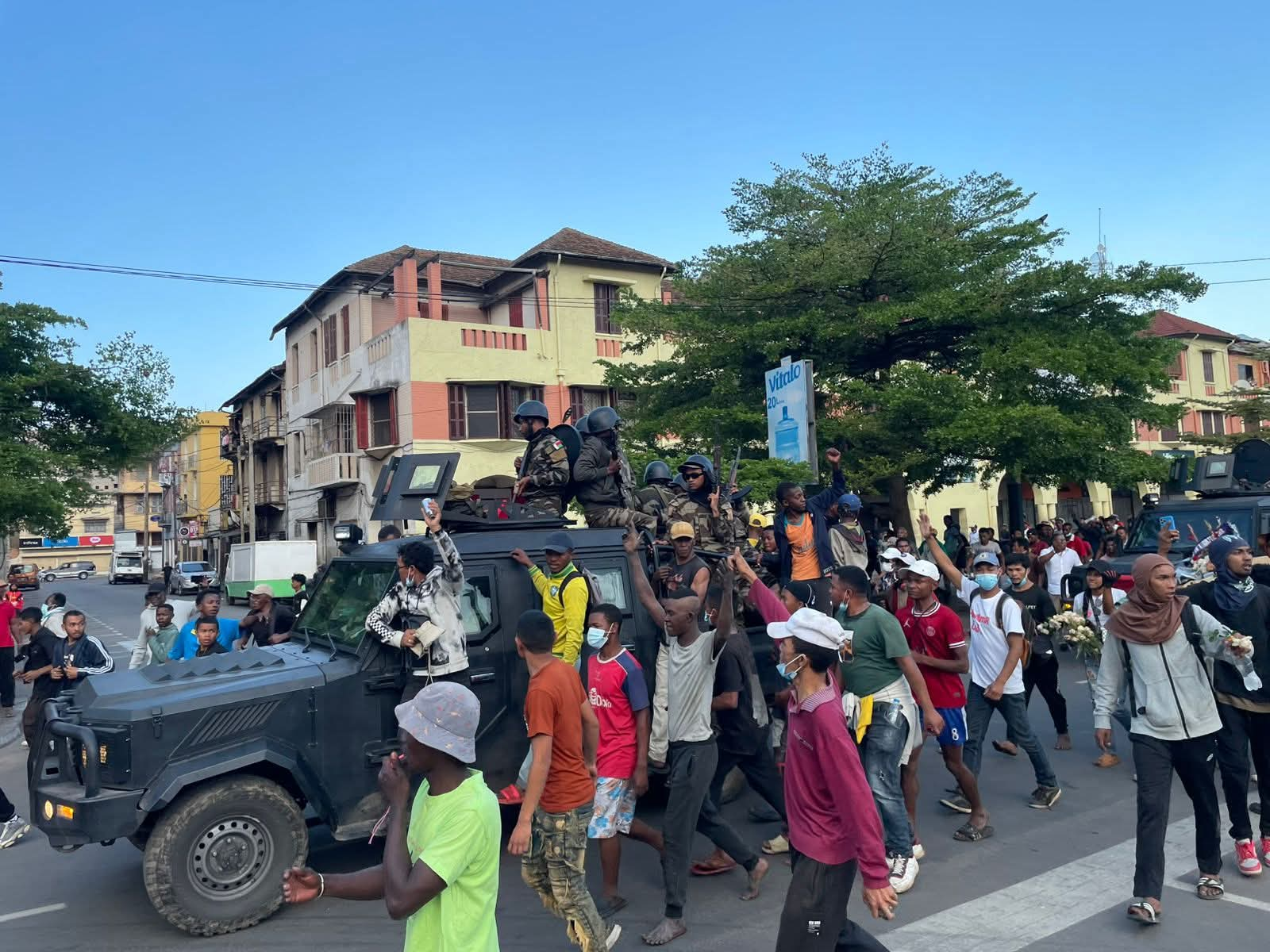Already a subscriber? Make sure to log into your account before viewing this content. You can access your account by hitting the “login” button on the top right corner. Still unable to see the content after signing in? Make sure your card on file is up-to-date.
Madagascan soldiers have now joined forces with thousands of anti-government protesters who are demanding the resignation of President Andry Rajoelina amid growing outrage over corruption and worsening living conditions.
Some shit you should know before you dig in: Roughly a month ago, many people in Madagascar began taking to the streets over widespread power and water shortages, voicing frustration with the government’s failure to provide basic services. What started as spontaneous, youth-led demonstrations quickly evolved into a broader movement demanding systemic political change, with protesters calling out corruption, economic mismanagement, and a lack of accountability from those in power. Organized largely by Gen Z activists, the protests have drawn increasing numbers to the streets of the capital, Antananarivo, with some of the largest crowds assembling in recent years. In response, the government initially adopted a conciliatory tone, as President Andry Rajoelina dismissed his entire cabinet and appointed a new prime minister, but the unrest continued as demonstrators insisted that the president himself step down. Despite calls for dialogue from officials, security forces have repeatedly cracked down on the protests using tear gas, rubber bullets, and stun grenades, leaving dozens injured and fueling further anger among the population.

What’s going on now: In a notable development, Madagascan soldiers have now joined forces with the growing protest movement. The most prominent group to break ranks is the elite CAPSAT unit, a military division that played a central role in helping President Andry Rajoelina seize power during the 2009 coup. On Saturday, members of CAPSAT were seen leaving their base in Soanierana, driving armored vehicles into the capital and escorting protesters into May 13 Square—a key site of political uprisings that had previously been locked down by security forces.
In videos circulated widely on social media, CAPSAT soldiers issued a call to action, urging members of the military, police, and gendarmerie to defy government orders and refuse to fire on civilians. They called on fellow soldiers to “close the gates” of their bases, “await new instructions,” and even “prevent all aircraft from taking off”—a clear challenge to the government’s control over national infrastructure. “Do not obey orders from your superiors,” one CAPSAT leader declared. “Point your weapons at those who order you to fire on your comrades-in-arms, because they will not take care of our families if we die.”
While the exact number of defecting soldiers remains unknown, the presence of organized, heavily armed units marching alongside protesters signals a serious breach in the military chain of command.
The government has attempted to downplay the significance of the defection. The newly appointed Prime Minister, General Ruphin Fortunat Zafisambo, and the Minister of the Armed Forces have urged military personnel to remain calm and prioritize dialogue, warning against internal conflict.







